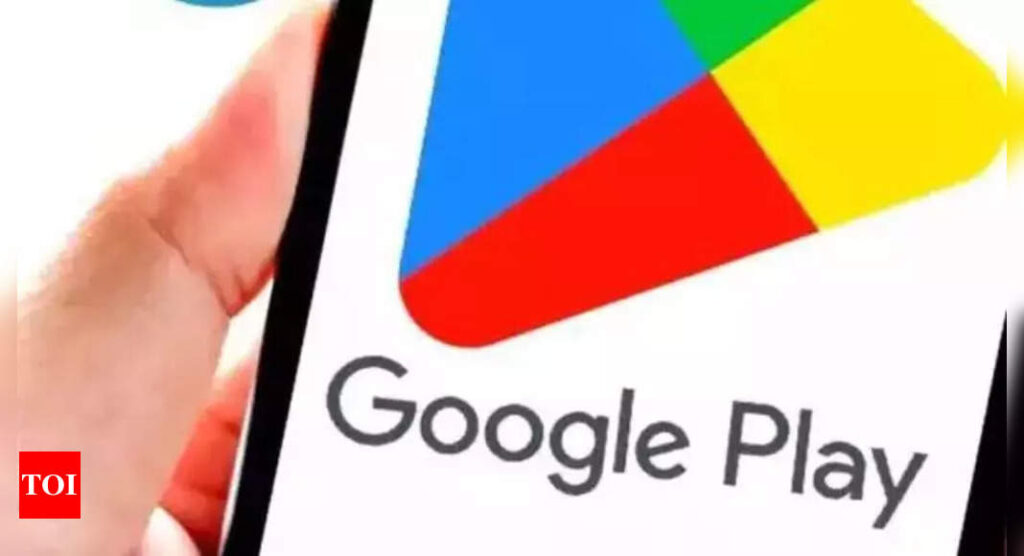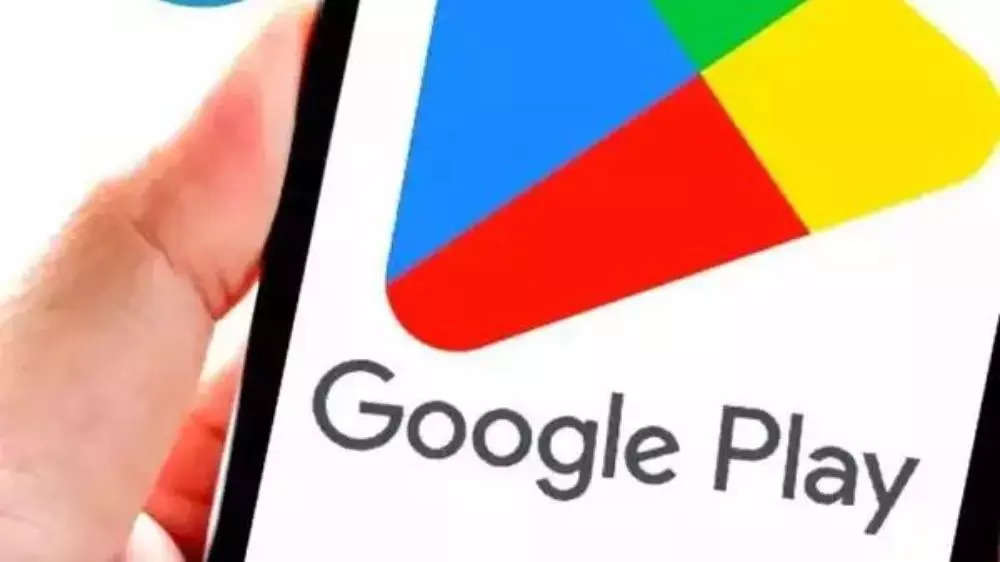[ad_1]
During the antitrust trial between Epic Games and Google, it was revealed that the latter offered deals to game developers to keep them within the Google Play ecosystem. Epic’s lawyer presented internal documents and grilled a former Google Play executive about how these deals were aimed at addressing competition from rival app stores, as well as the standard 30% revenue cut taken from developers.
For instance, Google reached an $18 million agreement with Tencent’s Riot Games, the maker of popular battle royale Valorant, in 2020. Activision Blizzard received incentives worth $360 million to ensure its games launched on the Google Play store. Epic Games tries to show that Google was willing to spend millions to persuade game developers to stick with Google Play.
Activision has previously dismissed Epic’s allegations as “nonsense.” An Activision spokesperson said on Tuesday that “Google never asked, pressured or made us agree not to compete with Google Play,” as they have previously stated in 2022.
Google’s “bribe or block” tactics under questioning at the trial
Epic’s lawyer argued that Google was using “bribe or block” tactics to prevent competition. The campaign inside Google was known as “Project Hug,” which is a violation of federal antitrust law.
Google defended its actions and claimed that the incentives offered to developers to launch their apps on Google Play were legitimate ways of competing with other app stores like Apple’s App Store, Samsung Galaxy Store, and Amazon Appstore. The company emphasised that its agreements with game developers did not prohibit them from creating alternate app stores. These agreements included incentives such as co-marketing and ad credits.
Lawrence Koh, the former director of games business development for Google Play, testified about “Project Hug” in 2019. He explained that it was an initiative to attract developers. The jury saw internal emails and documents that showed Activision’s King unit and Riot Games were considering launching competing Android app stores.
In a 2019 email exchange, Koh’s coworker informed him that Activision’s chief executive, Bobby Kotick, was upset about the 30% cut that developers had to pay Google Play.
Google’s plan to attract developers to the Play Store
A report estimated that Google Play could face a margin loss of $2.5 billion from 2019 to 2022 if it didn’t take action to support its developers. This led the team to ask the company to invest $575 million through 2022 to attract top developers to Google Play.
Koh denied bribery allegations and clarified that Google never prevented Riot Games from launching their app store. Instead, the company requested developers to put games on Google Play with features at par with other platforms. Epic’s lawyers presented internal emails suggesting Google discouraged Riot Games from setting up its own app marketplace. Once Riot agreed to launch on Play, Google moved on to the next phase of their partnership.
During a questioning session with Google’s attorney, Michelle Park Chiu, Koh denied that his company bribed Riot Games to prevent them from launching their app store. Instead, Koh explained that the developers were asked to install games on Google Play with features and quality at par with other platforms.
Epic’s lawyers presented internal emails that suggested Google was discouraging Riot Games from setting up its app marketplace. In one such email from February 2020, Koh wrote that the focus was on getting Riot Games to shift away from launching its own “off-Play” distribution platform. Once Riot agreed to launch on Play, Koh wrote, “we decided to move to the next phase of levelling up our partnership.”
Google had previously also denied that its deals prohibit gaming companies from launching competing app stores. The company said at the time that Epic misrepresented their business conversations. Google’s Project Hug, an initiative associated with these mobile gaming deals, incentivizes developers to give early access to new app content for Google Play consumers, according to the company.
Activision has previously dismissed Epic’s allegations as “nonsense.” An Activision spokesperson said on Tuesday that “Google never asked, pressured or made us agree not to compete with Google Play,” as they have previously stated in 2022.
Microsoft, which now has acquired Activision Blizzard, had discussed a plan to create a “next generation game store” that will operate across multiple devices, including mobile.
For instance, Google reached an $18 million agreement with Tencent’s Riot Games, the maker of popular battle royale Valorant, in 2020. Activision Blizzard received incentives worth $360 million to ensure its games launched on the Google Play store. Epic Games tries to show that Google was willing to spend millions to persuade game developers to stick with Google Play.
Activision has previously dismissed Epic’s allegations as “nonsense.” An Activision spokesperson said on Tuesday that “Google never asked, pressured or made us agree not to compete with Google Play,” as they have previously stated in 2022.
Google’s “bribe or block” tactics under questioning at the trial
Epic’s lawyer argued that Google was using “bribe or block” tactics to prevent competition. The campaign inside Google was known as “Project Hug,” which is a violation of federal antitrust law.
Google defended its actions and claimed that the incentives offered to developers to launch their apps on Google Play were legitimate ways of competing with other app stores like Apple’s App Store, Samsung Galaxy Store, and Amazon Appstore. The company emphasised that its agreements with game developers did not prohibit them from creating alternate app stores. These agreements included incentives such as co-marketing and ad credits.
Lawrence Koh, the former director of games business development for Google Play, testified about “Project Hug” in 2019. He explained that it was an initiative to attract developers. The jury saw internal emails and documents that showed Activision’s King unit and Riot Games were considering launching competing Android app stores.
In a 2019 email exchange, Koh’s coworker informed him that Activision’s chief executive, Bobby Kotick, was upset about the 30% cut that developers had to pay Google Play.
Google’s plan to attract developers to the Play Store
A report estimated that Google Play could face a margin loss of $2.5 billion from 2019 to 2022 if it didn’t take action to support its developers. This led the team to ask the company to invest $575 million through 2022 to attract top developers to Google Play.
Koh denied bribery allegations and clarified that Google never prevented Riot Games from launching their app store. Instead, the company requested developers to put games on Google Play with features at par with other platforms. Epic’s lawyers presented internal emails suggesting Google discouraged Riot Games from setting up its own app marketplace. Once Riot agreed to launch on Play, Google moved on to the next phase of their partnership.
During a questioning session with Google’s attorney, Michelle Park Chiu, Koh denied that his company bribed Riot Games to prevent them from launching their app store. Instead, Koh explained that the developers were asked to install games on Google Play with features and quality at par with other platforms.
Epic’s lawyers presented internal emails that suggested Google was discouraging Riot Games from setting up its app marketplace. In one such email from February 2020, Koh wrote that the focus was on getting Riot Games to shift away from launching its own “off-Play” distribution platform. Once Riot agreed to launch on Play, Koh wrote, “we decided to move to the next phase of levelling up our partnership.”
Google had previously also denied that its deals prohibit gaming companies from launching competing app stores. The company said at the time that Epic misrepresented their business conversations. Google’s Project Hug, an initiative associated with these mobile gaming deals, incentivizes developers to give early access to new app content for Google Play consumers, according to the company.
Activision has previously dismissed Epic’s allegations as “nonsense.” An Activision spokesperson said on Tuesday that “Google never asked, pressured or made us agree not to compete with Google Play,” as they have previously stated in 2022.
Microsoft, which now has acquired Activision Blizzard, had discussed a plan to create a “next generation game store” that will operate across multiple devices, including mobile.
[ad_2]
Source link











More Stories
Google Maps: Three privacy features coming to Google Maps on Android, iPhones
Most-Downloaded IPhone App: This Chinese app was the most-downloaded iPhone app in the US in 2023
Ukraine’s largest mobile operator goes offline for millions of users after cyber attack